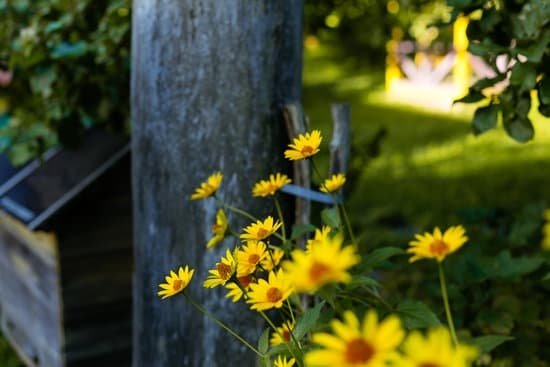Spring Vegetable Gardening Tips Beginners
The arrival of spring ushers in many things, including the desire to get outside and garden. If you’re just starting out in vegetable gardening, here are a few tips to help you get started.
Choose the Right Site
First, choose a site that gets full sun and has well-drained soil. If your soil is heavy or clay-like, you can lighten it up by adding organic matter such as compost or peat moss.
Start with a Small Plot
When starting out, it’s best to start small. A plot that’s 4’x4′ or 5’x5′ is a good size to begin with. You can always expand later if you want to.
Plant Warm-Season Vegetables
Next, plant warm-season vegetables such as tomatoes, peppers, and zucchini. These vegetables will do best in soil that’s 60-85 degrees F.
Plant Cool-Season Vegetables
Plant cool-season vegetables such as lettuce, broccoli, and carrots. These vegetables will do best in soil that’s 45-60 degrees F.
Amend the Soil
Before planting, amend the soil with compost or organic matter. This will help to improve the soil’s structure and fertility.
Water Regularly
Water regularly, especially during the early stages of growth. Vegetables need 1-1.5 inches of water per week.
Fertilize
Fertilize your vegetables with a balanced fertilizer such as 10-10-10. Fertilize again after the vegetables start to produce fruit or vegetables.
Mulch
Mulch your vegetables with straw, leaves, or compost to help retain moisture and suppress weeds.
Enjoy Your Vegetables
Now that you’ve planted your vegetables, sit back and enjoy the fruits (or vegetables) of your labor!
Michigan Vegetable Gardening Tips
As a Michigan gardener, you know that you have to deal with some unique challenges. Here are some tips to help you get the most out of your garden.
1. Adjust your planting schedule. The best time to plant vegetables in Michigan varies depending on the type of vegetable. For example, early crops like lettuce and spinach can be planted in April, while tomatoes and peppers should be planted in June.
2. Choose the right vegetables. Not all vegetables are well-suited to Michigan gardening. For example, Michigan summers are too hot for eggplants and cucumbers. Stick to vegetables that are native to Michigan, or those that are well-adapted to our climate.
3. Use mulch. Mulch will help to protect your plants from the elements and keep the soil moist. It will also help to suppress weed growth.
4. Water wisely. Michigan summers can be hot and dry, so make sure to water your plants regularly. However, you don’t want to water the plants too much, as this can actually damage them.
5. Deal with pests and diseases. One of the challenges of Michigan gardening is dealing with pests and diseases. There are a number of ways to deal with these problems, including using organic or synthetic pesticides, or using crop rotation.
6. Harvest wisely. Make sure to harvest your vegetables at the right time so that they are at their peak flavor and nutritional value. For example, pick lettuce when it is young and tender, and wait until the tomatoes are fully ripe before harvesting them.
By following these tips, you can make your Michigan vegetable garden a success.
Tips For Raised Bed Vegetable Gardening
There’s a lot to love about vegetable gardening, but one of the best things about it is that you can do it in a raised bed. A raised bed is simply a bed that is raised above the ground, making it easier for you to garden. Here are some tips for raised bed vegetable gardening:
1. Choose the right spot. When you’re choosing a spot for your raised bed, make sure to pick a spot that gets plenty of sun. You also want to make sure that the spot is relatively free of weeds and other pests.
2. Size matters. When you’re choosing a spot for your raised bed, make sure to choose a spot that is at least 4 feet by 4 feet. This will give you plenty of room to work in.
3. Use quality soil. When you’re building your raised bed, be sure to use quality soil. Good soil is essential for healthy plants.
4. Don’t forget the drainage. When you’re building your raised bed, be sure to include a drainage hole so that water can drain out. This will help keep your plants healthy.
5. Add compost. Compost is a great addition to any garden, and it’s especially beneficial for raised beds. Add a layer of compost to your raised bed before planting your vegetables.
6. Use the right vegetables. Not all vegetables are suited for growing in a raised bed. Make sure to choose vegetables that will grow well in your climate and soil type.
7. Mulch your bed. Mulching your raised bed is a great way to keep your plants healthy and to protect the soil from erosion.
8. Water regularly. Raised beds need to be watered regularly, especially during the summer months. Be sure to water your plants well and make sure the soil is moist.
9. Fertilize regularly. Fertilizing your plants is essential for healthy growth. Be sure to fertilize your plants regularly, using a fertilizer that is suited for your climate and soil type.
10. Enjoy your bounty! Raised bed vegetable gardening is a great way to enjoy fresh, homegrown vegetables. Enjoy the fruits of your labor by harvesting your vegetables and eating them fresh.
Vancouver Vegetable Gardening Tips
Starting a vegetable garden in Vancouver can be a rewarding experience, but there are a few things to keep in mind to make the most of your garden. Here are a few tips to get you started:
1. Choose the right location for your garden. The garden should be in a sunny spot with well-drained soil.
2. Amend the soil with compost or manure to improve drainage and fertility.
3. Plant vegetables that grow well in Vancouver’s climate. Some of the best vegetables to grow in Vancouver include tomatoes, peppers, carrots, lettuce, and peas.
4. Water the garden regularly, especially during the summer.
5. Harvest the vegetables regularly to encourage further production.
6. Mulch the garden to keep the soil moist and to suppress weed growth.
7. Use organic pesticides and fertilizers to keep the garden healthy.
8. Enjoy the fruits of your labour!
Vegetable Gardening Tips South Africa
If you are looking to get into vegetable gardening, or are simply looking for some tips to improve your current skills, you have come to the right place! In this blog post, we will be discussing some basic tips that will help you get the most out of your vegetable garden.
Location, Location, Location
One of the most important things to consider when planting a vegetable garden is the location. You will want to choose a spot that gets plenty of sunlight, and is relatively sheltered from the wind. The soil should also be fertile and well-drained.
Layout
When designing your vegetable garden, it is important to think about the layout. You will want to make sure that there is enough room for each type of vegetable that you plan to grow. It is also a good idea to group plants that have similar needs together. For example, you can group plants that require the same amount of water and sunlight together.
Soil Preparation
Before planting your vegetables, you will need to prepare the soil. This can be done by adding compost or manure to the soil. You will also want to make sure that the pH of the soil is optimal for your vegetables. Most vegetables prefer a soil pH of 6.0-7.0.
Watering
It is important to water your vegetable garden regularly, especially during the hot summer months. You will want to water the plants early in the morning or late in the evening, so that the foliage has time to dry before nightfall.
Fertilizing
You will also need to fertilize your vegetable garden regularly. A good fertilizer to use is compost tea. This can be made by adding compost to a bucket of water, and letting it steep for a few days. You can then use the compost tea to water your plants.
We hope that these tips have been helpful! If you would like more information on vegetable gardening, please visit our website or contact us.

Welcome to my gardening blog! I am passionate about plants and enjoy sharing my knowledge and experiences with others. In this blog, I will write about everything related to gardening, from tips on how to get started to updates on my own garden projects.





